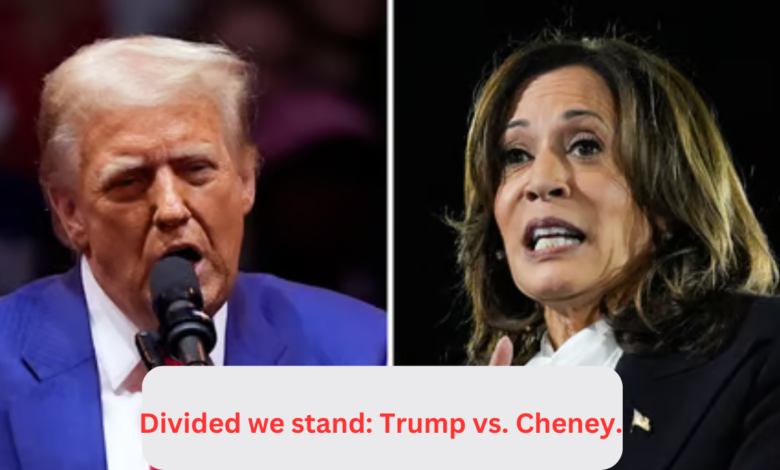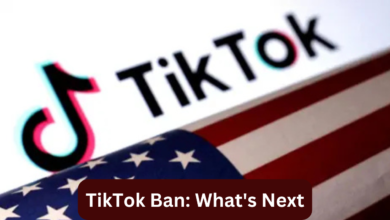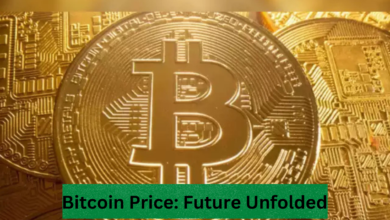
Trump-Cheney Clash-In the tumultuous landscape of American politics, few figures have sparked as much controversy as Donald Trump. Conversely, Liz Cheney, a prominent Republican and daughter of former Vice President Dick Cheney, has positioned herself as a vocal critic of the former president. The friction between these two figures encapsulates broader ideological battles within the GOP and reflects changing dynamics in the American political arena.
Table of Contents
ToggleBackground: The Rise of Trump and Cheney
To understand the significance of any quotes exchanged between Donald Trump and Liz Cheney, we must first explore their respective backgrounds and political journeys.
Donald Trump: A New Era in Politics
Donald Trump, a businessman turned politician, rose to prominence as the 45th President of the United States from 2017 to 2021. His brand of populism, characterized by anti-establishment rhetoric and a focus on nationalistic policies, resonated with a significant portion of the American electorate. His presidency was marked by controversial policies, divisive rhetoric, and an unwavering commitment to his base.
Trump’s administration faced numerous challenges, including impeachment proceedings, the COVID-19 pandemic, and widespread social unrest. Despite these issues, he maintained a robust following, which continues to influence the Republican Party’s direction.
Liz Cheney: A Voice of Dissent
Liz Cheney, on the other hand, emerged as a prominent figure within the Republican Party largely due to her lineage and political acumen. The daughter of Dick Cheney, she served as the U.S. Representative for Wyoming’s at-large congressional district from 2017 until 2021. Cheney’s early political career was characterized by her alignment with traditional conservative values, including a strong national defense and fiscal responsibility.
However, her vocal criticism of Trump, particularly regarding the January 6 Capitol riots and the former president’s role in undermining democratic processes, positioned her as a controversial figure within her party. Cheney’s refusal to back down in the face of Trump’s influence culminated in her removal from House Republican leadership in May 2021 and a primary defeat in 2022.
The Context of the Trump-Cheney Clash
The quote that epitomizes the clash between Trump and Cheney often centers around themes of loyalty, integrity, and the future of the Republican Party. One notable exchange occurred during Trump’s rally in Wyoming, where he referred to Cheney as a “bad Republican” and dismissed her criticisms as irrelevant. Cheney countered with strong statements about defending democracy and upholding the Constitution, signaling her willingness to challenge Trump’s narrative despite the risks.
Analyzing the Quote: Themes and Implications
The friction between Trump and Cheney encapsulates several important themes in contemporary American politics.
Loyalty vs. Principle
At the heart of the Trump-Cheney Clash lies a fundamental debate about loyalty. For Trump and many of his supporters, loyalty to the party and its leaders is paramount. This concept of loyalty often translates into a blind adherence to Trump’s agenda, even when it contradicts traditional Republican values.
Cheney, conversely, represents a faction of the party that prioritizes principles over loyalty to a single leader. Her stance raises critical questions about the future of the GOP: Can the party maintain its core values while aligning with a figure like Trump, whose approach often undermines those very values?
The Battle for the Soul of the GOP
The ideological battle between Trump loyalists and traditional conservatives has significant implications for the Republican Party. Cheney’s criticisms reflect a broader struggle within the party: the tension between populism and conservatism. As the GOP grapples with its identity, the stakes of this battle become increasingly clear.
Cheney’s quote emphasizes her commitment to a more traditional Republican ethos, which is rooted in democratic principles and institutional integrity. In contrast, Trump’s rhetoric often champions a more populist approach, appealing directly to the grievances of his base.
The Role of Women in Politics
The Trump-Cheney Clash also highlights the evolving role of women in politics. Cheney’s position as a female politician standing up against a powerful male figure embodies the challenges women face in male-dominated political arenas. Her stance has inspired a new generation of women in politics who prioritize integrity over allegiance to any one leader.
Cheney’s experience illustrates the complexities women face when navigating political landscapes that can be both rewarding and hostile. The support and backlash she has received serve as a microcosm of the broader challenges women encounter in their political careers.
The Implications for Future Elections
As we look ahead to future elections, the implications of the Trump-Cheney clash are significant. The divide within the Republican Party may shape candidate selection, electoral strategies, and voter engagement efforts.
Impact on Candidate Selection
The ongoing tension between Trump loyalists and traditional conservatives could influence who the GOP nominates for key positions in upcoming elections. Candidates who align closely with Trump’s populist agenda may face off against those who espouse Cheney’s more traditional conservative values.
This internal battle could result in a fragmented Republican Party, making it difficult for candidates to appeal to a broad base of voters. As the party navigates this divide, it must consider the long-term consequences of its choices on its electoral viability.
Electoral Strategies and Voter Engagement
The Trump-Cheney Clash also influences electoral strategies. Candidates may need to carefully balance their appeal to Trump’s base while also courting traditional conservatives. This balancing act can be tricky, especially in primaries where party loyalty often trumps broader electoral considerations.
Voter engagement efforts will likely focus on addressing the concerns of both factions. For Trump loyalists, candidates may emphasize a strong anti-establishment message, while traditional conservatives may seek assurances that fundamental democratic principles will be upheld.
The Broader Political Landscape
Trump – Cheney Clash reflects broader trends in American politics. The rise of populism, increased polarization, and a growing distrust in traditional institutions have reshaped the political landscape in profound ways.
Populism’s Ascendancy
Trump’s presidency marked a significant shift towards populism within the GOP, characterized by a focus on the concerns of everyday Americans, often at the expense of traditional political norms. This trend has resonated with many voters who feel disenfranchised by the political establishment.
However, as Cheney and her supporters point out, the embrace of populism can come at a cost. It risks undermining democratic institutions and norms that have long been foundational to the American political system. As the GOP navigates this new reality, it must grapple with the implications of this shift for its identity and its relationship with voters.
Polarization and Its Consequences
The Trump-Cheney Clash exemplifies the growing polarization in American politics. The ideological divide within the Republican Party mirrors broader societal divisions, making bipartisan cooperation increasingly challenging.
As both parties become more entrenched in their respective ideologies, the potential for productive dialogue diminishes. The resulting polarization can lead to gridlock in government, increased hostility among voters, and a diminished faith in democratic processes.
Conclusion: A Defining Moment in GOP History
The quote exchange between Donald Trump and Liz Cheney encapsulates a defining moment in Republican Party history. Their conflict represents not only a personal feud but also a broader ideological struggle that will shape the future of the GOP and American politics as a whole.
As the party grapples with its identity, the lessons from this clash will be crucial in determining how it moves forward. Will it embrace a more populist agenda at the expense of traditional values, or will it seek to reconcile these competing visions?
Ultimately, the resolution of this conflict will have lasting implications, not just for the Republican Party but for the health of American democracy itself. The stakes are high, and the outcome remains uncertain, making this a pivotal moment in contemporary political discourse.



